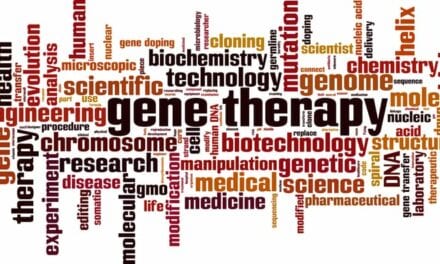Avidity Biosciences Inc, a biopharmaceutical company committed to delivering a new class of RNA therapeutics called Antibody Oligonucleotide Conjugates (AOCs), joins in activities to raise awareness for Facioscapulohumeral muscular dystrophy (FSHD) in support of World FSHD Day and highlights preclinical results supporting AOC 1020 for the treatment of FSHD at the 29th Annual FSHD Society International Research Congress (FSHD IRC) in Orlando, Florida. Currently, there are no approved therapies for the treatment of FSHD.
“We are grateful for our partnership with the global FSHD community as we collectively work together toward developing treatments for one of the most common forms of muscular dystrophy. We continue to work closely with the community to advance AOC 1020 for the treatment of FSHD into the clinic by the end of this year,” said Sarah Boyce, president and chief executive officer.
FSHD is a rare, hereditary muscle-weakening condition that affects approximately 16,000-38,000 people in the United States. It is marked by life-long, progressive loss of muscle function and causes significant pain, fatigue, and disability. FSHD is an autosomal dominant disease caused by the abnormal expression of DUX4 (double homeobox 4), a gene involved in embryonic development but not typically expressed in muscles. This abnormal expression of DUX4 leads to a series of downstream events that result in skeletal muscle wasting and compromised muscle function with onset often in teenage and early adult years.
“Our preclinical data, presented at FSHD IRC, support our approach of directly targeting DUX4 with AOC 1020. The data demonstrate that a murine version of AOC 1020 prevents muscle weakness by blocking expression of DUX4 in a FSHD mouse model of disease. These findings are particularly important for progressive diseases like FSHD where aberrant and sporadic expression of DUX4 leads to cumulative damage across different muscle groups,” said W. Michael Flanagan, PhD, Avidity Bioscience’s chief technical officer.
Every June 20th, people around the world join in activities to raise awareness for FSHD through World FSHD Day and to recognize patients and families around the world who are affected by FSHD. To mark FSHD awareness day, Avidity is participating in the FSHD IRC as well as the FSHD Connect Conference, an educational conference specifically for people living with FSHD and their families. Both conferences are being held in Orlando, Florida and organized by the FSHD Society, the world’s largest research-focused patient organization for FSHD.
Oral Presentation at FSHD IRC
Avidity recently shared preclinical data from the FSHD program during a presentation at the FSHD IRC. Studies were conducted in mouse models of FSHD that are genetically engineered to express human DUX4 in skeletal muscle. AOC 1020 is comprised of a DUX4-targeting siRNA conjugated to the human anti-transferrin receptor 1 monoclonal antibody. The preclinical studies were done using a monoclonal antibody suitable for mice. The preclinical data provides support for AOC 1020 to enter the clinic for the treatment of FSHD by end of 2022.
Key highlights from the oral presentation included:
- Data from a study conducted to assess pharmacology in the mouse model of FSHD showed robust dose-dependent down regulation of DUX4 genes in skeletal muscle for 8 weeks following a single intravenous (IV) dose of the murine version of AOC 1020.
- Data from a study designed to assess phenotype development in the FSHD mouse model showed that a single IV treatment with the murine version of AOC 1020 prevented muscle weakness development demonstrated by three functional assays – treadmill running, in vivo force and compound muscle action potential.
Avidity Biosciences also presented data from a real-world data analysis of patients with FSHD before and after their diagnosis. The results highlighted the increased morbidity and medical and financial burden patients face as they progress through their journey living with FSHD.
[Source(s): Avidity Biosciences Inc, PR Newswire]





